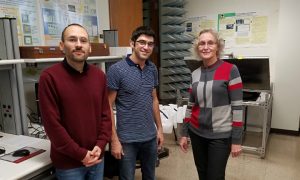
Here we are at the end of March, and the end of Week 11 in the academic calendar – one month to go until the end of the semester and commencement. The snow on campus is steadily disappearing, Mont Ripley is closed, and I have hung up my skis for the seasons. Out like a lamb, as they say. This is the calm before the storm, although for me it is not so calm as there is a lot of planning to do! I’ll be on the road next week, but after that we have the Design Expo, the meeting of our External Advisory Committee, final exams, all leading to commencement on April 29.
One area of the department that does see a flurry of activity at this time is the completion of the PhD dissertation defenses. These do not happen right at the end of the semester, as it is often the case that PhD candidates need to make some changes to their dissertations before they get to the final approval stage. We have two defenses this week and two next. I like to go to as many of the presentations as I can, although unfortunately I have to miss the ones next week. The ones I saw this week, both yesterday, were quite good.
It has been a pretty good year for PhD production, by our standards. Assuming all the remaining work is completed according to plan we will graduate 12 PhD students this academic year, which ties a record for us. Our departmental goal over the last 3-year period is to graduate 30 PhD students, or 10 per year. We hit that mark over the 2011-2014 time period, but will not make it this time – we only had 9 graduates total in 2015 and 2016. There are a lot of variables that affect PhD enrollment and completion, so we accept that and move forward.
Building and sustaining a PhD program in a department like ours, which has a long and distinguished record in undergraduate education, requires a concerted effort and a shift in the culture over the long haul. I believe the ECE Department is doing exactly that, and I am proud of the direction in which we are going and the gains that have been made.
At all universities, PhD training is intimately connected to research activity. I have heard it said that the PhD education is an “apprenticeship in research”, also that “you do not earn a PhD, you become one.” The process requires a great deal of commitment on the part of the student, who undertakes several years of an almost monastic existence while doggedly pursuing the goal of making an original and creative contribution to a (usually) narrowly-defined technical area. It requires a lot of effort on the part of the academic advisor as well. Unlike a lot of other teaching roles in higher education, the relationship between the advisor and the student is often deeply personal and almost certainly unique. For this reason, people often think of an academic “lineage” defined by the chain of advising relationships, much like a family tree. Believe it or not, I can trace my academic lineage back to Fourier! (Aside: many years ago, it was pointed out to me that my academic advisor, Bede Liu, had an academic lineage that went back to Fourier. I thought that was cool but it was a full 24 hours before it dawned on me that as a result, the same was true for me.)
The decision to have a viable PhD program that is recognized nationally and internationally begins with a shared understanding of why we do it in the first place. As described above a PhD program is certainly connected to research, but I have long maintained that the two are not synonymous. A research program is the responsibility of the faculty, who set the direction for the research, are carrying out their own research, and who are working hard to build up a program with sustainable external funding. While the PhD students are participating in the research, they are really here to learn the craft from their advisors. An analogy I like to think of is that of a master musician and a student in the conservatory: the master must be an accomplished performer in his or her own right, and perform in public regularly, while at the same time training the student in the art.
This then raises the question, why do we do research? My answer on this one is simple: we do research to make the world a better place. Any other reason, such as having a research program in order to justify having a PhD program, will doom the research organization to failure or at best mediocrity. The department faculty need to be enthusiastic about, and committed to, their scholarship. In this way they will lead by example and produce outstanding PhD graduates, who in turn will do the same in their own careers. I am happy to say that, from what I have seen this week, the Michigan Tech ECE faculty feel the same way.
It is often the case that university and department rankings are heavily influenced by the size and productivity of research and PhD programs. Since prospective students, including high-school students, often use such rankings in their decisions about what schools to attend, one could easily imagine a motivation to build up a research program for the sole purpose of attracting undergraduate students. This would be misguided and we need to guard against it. This is not to say that quality research programs and quality undergraduate programs are in conflict in some sort of zero-sum game; far from it. The best universities are the ones in which the faculty are passionate about their scholarship and are effective in communicating that passion to the young minds that pass through their gates. The ideal of the teacher-scholar is something we should all be striving toward. It is not easy, and we do not always live up to that ideal, but if we keep the goal out in front of us at all times the university will be the better for it.
It is exciting and rewarding to be at a place like Michigan Tech, where we have proud traditions from the past but also are moving forward to build new ones for the future. My congratulations in advance to all our PhD graduates and their advisors in the 2016-2017 academic year.
– Dan
Daniel R. Fuhrmann
Dave House Professor and Chair
Department of Electrical and Computer Engineering
Michigan Technological University
 Our ability to make an impact on the lives of young people, and on economic development and workforce training in the state of Michigan and nationwide, depends critically on university efforts to spread the word about the value of a Michigan Tech education and to get students in the front door. Today I would like to acknowledge the outstanding work done by John Lehman, Associate Vice President for Enrollment and University Relations, Allison Carter, Director of Admissions, and their entire team of university recruiters who spend countless hours on the road attending high school college fairs, talking to students and high school counselors, and serving as our front line ambassadors for the university. We could not do our job if they did not do theirs, and they do it very well.
Our ability to make an impact on the lives of young people, and on economic development and workforce training in the state of Michigan and nationwide, depends critically on university efforts to spread the word about the value of a Michigan Tech education and to get students in the front door. Today I would like to acknowledge the outstanding work done by John Lehman, Associate Vice President for Enrollment and University Relations, Allison Carter, Director of Admissions, and their entire team of university recruiters who spend countless hours on the road attending high school college fairs, talking to students and high school counselors, and serving as our front line ambassadors for the university. We could not do our job if they did not do theirs, and they do it very well.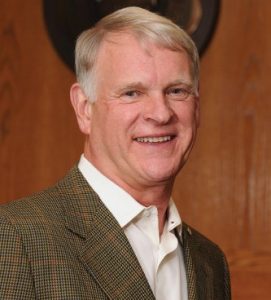 Greetings to all from the road. I have been out of town for a little over a week, on a trip that combined a little bit of work and a little bit of vacation. Actually a lot of vacation. Last weekend and in the early part of this week I was in Steamboat Springs, Colorado, seeing if my skills in downhill skiing, developed over many evenings and weekends at Mont Ripley, would carry over to a larger – much larger – resort in the Rockies. I am happy to say that they did; I had a wonderful time! From what I can tell the average skill level at Mont Ripley is higher than what it was at Steamboat. That’s because a lot of the people who go to a faraway mountain resort are duffers like me who go there for vacation, and are not regular expert skiers. I felt right at home. I can also report that, after nine years in the U.P., my tolerance for cold seems to be higher than that of the average flatlander who goes to Colorado. That’s a good thing, because from what I understand I’ll be coming home to some of the coldest weather of the winter.
Greetings to all from the road. I have been out of town for a little over a week, on a trip that combined a little bit of work and a little bit of vacation. Actually a lot of vacation. Last weekend and in the early part of this week I was in Steamboat Springs, Colorado, seeing if my skills in downhill skiing, developed over many evenings and weekends at Mont Ripley, would carry over to a larger – much larger – resort in the Rockies. I am happy to say that they did; I had a wonderful time! From what I can tell the average skill level at Mont Ripley is higher than what it was at Steamboat. That’s because a lot of the people who go to a faraway mountain resort are duffers like me who go there for vacation, and are not regular expert skiers. I felt right at home. I can also report that, after nine years in the U.P., my tolerance for cold seems to be higher than that of the average flatlander who goes to Colorado. That’s a good thing, because from what I understand I’ll be coming home to some of the coldest weather of the winter.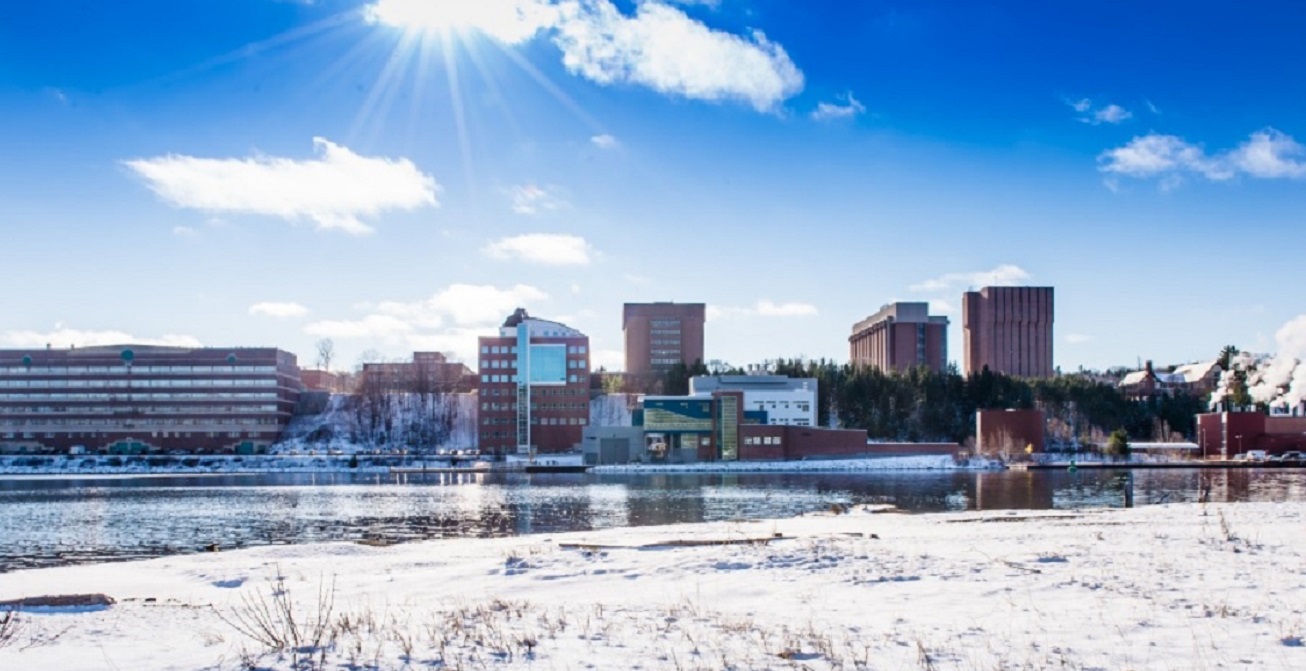 Today is the Friday of Week 8 in the spring academic calendar, and last regular class day before spring break at Michigan Tech. Things are pretty quiet around campus, as many students and faculty members head out for a variety of activities elsewhere. At least, I assume that is the case: I am not on campus to observe, as I am on the road myself for a trip that is a little bit work and mostly vacation.
Today is the Friday of Week 8 in the spring academic calendar, and last regular class day before spring break at Michigan Tech. Things are pretty quiet around campus, as many students and faculty members head out for a variety of activities elsewhere. At least, I assume that is the case: I am not on campus to observe, as I am on the road myself for a trip that is a little bit work and mostly vacation.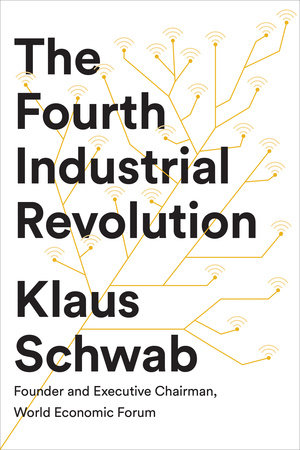 This week is Engineers Week, a national celebration of all things engineering, and as you might imagine there are a number of activities going on around campus that raise awareness of the field (like we need that here) and generally give us the opportunity to feel good about who we are and what we do. Although the ECE Department does not take a lead role in organizing the week’s activities, various corners of the department such as the Blue Marble Security Enterprise are participating. This past Wednesday was also the date of the spring Career Fair, when companies and organizations come to campus to recruit our students for co-ops, internships, and full-time jobs. The spring fair is always smaller than the one in the fall, but with 219 recruiting organizations on campus it is still respectable by anyone’s standards. As usual, a lot of companies are looking to hire electrical engineers and computer engineers, a theme I have touched on many times before. This weekend the fun will continue with a student-organized and student-led hackathon called Winter Wonderhack. We expect a fair number of Michigan Tech students, some students for other universities in the region, and maybe a few high school students too, on campus showing off their chops in creativity and invention.
This week is Engineers Week, a national celebration of all things engineering, and as you might imagine there are a number of activities going on around campus that raise awareness of the field (like we need that here) and generally give us the opportunity to feel good about who we are and what we do. Although the ECE Department does not take a lead role in organizing the week’s activities, various corners of the department such as the Blue Marble Security Enterprise are participating. This past Wednesday was also the date of the spring Career Fair, when companies and organizations come to campus to recruit our students for co-ops, internships, and full-time jobs. The spring fair is always smaller than the one in the fall, but with 219 recruiting organizations on campus it is still respectable by anyone’s standards. As usual, a lot of companies are looking to hire electrical engineers and computer engineers, a theme I have touched on many times before. This weekend the fun will continue with a student-organized and student-led hackathon called Winter Wonderhack. We expect a fair number of Michigan Tech students, some students for other universities in the region, and maybe a few high school students too, on campus showing off their chops in creativity and invention.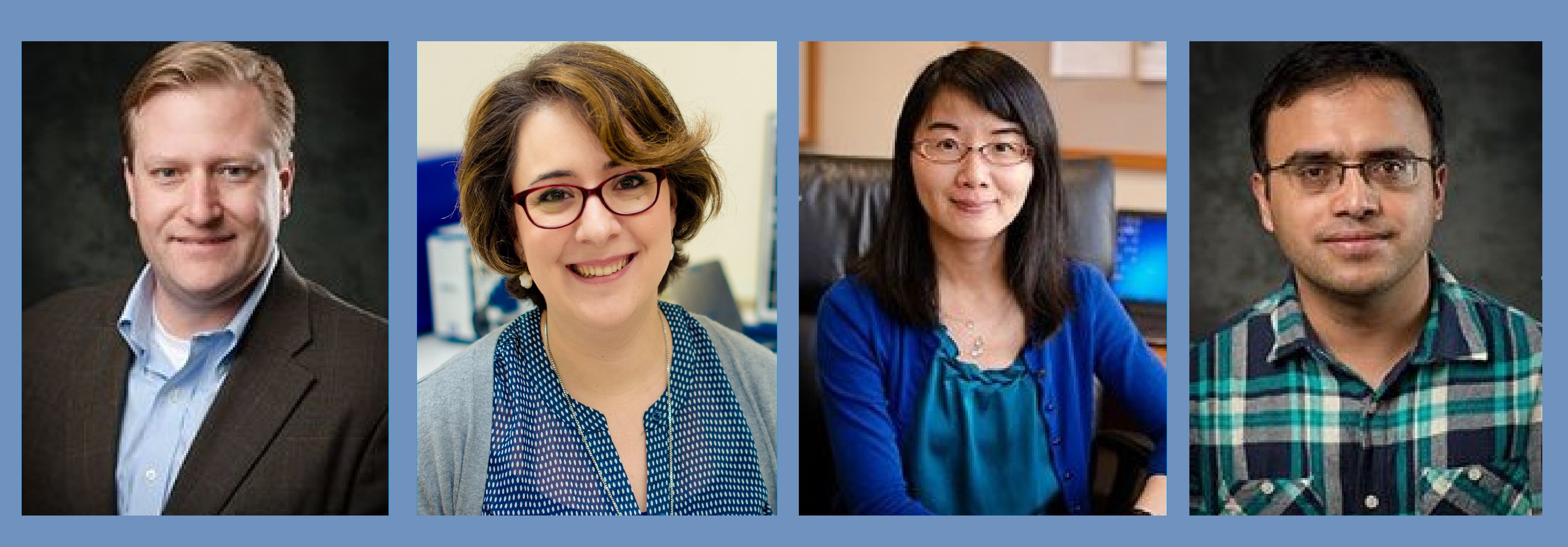 The life blood of any academic department is the faculty, and one of the keys to maintaining an intellectually healthy and vigorous faculty is the regular infusion of new talent and all the fresh ideas that come with it. I am happy to say that over the time that I have been here, the ECE Department has been fortunate to be able to bring in a number of new young faculty members, and doubly fortunate that they have been successful in so many different ways. Today I want to give a special shout-out to that side of our department.
The life blood of any academic department is the faculty, and one of the keys to maintaining an intellectually healthy and vigorous faculty is the regular infusion of new talent and all the fresh ideas that come with it. I am happy to say that over the time that I have been here, the ECE Department has been fortunate to be able to bring in a number of new young faculty members, and doubly fortunate that they have been successful in so many different ways. Today I want to give a special shout-out to that side of our department.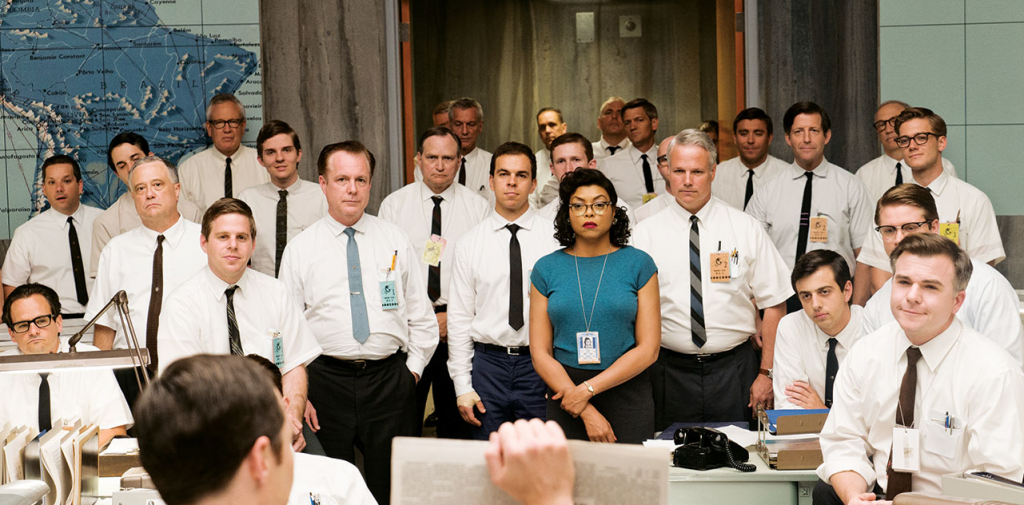
 I am setting aside the draft of the column I was working on for this week, so that I can write a few words in response to the president’s executive order temporarily banning people from seven countries from entering the United States. This order has had an immediate and significant impact across all of American higher education, including Michigan Tech. The impact has both a humanitarian dimension, in terms of the damage it is doing to our international students, scholars, and their families, and a practical dimension, in terms of the research, scholarship, and enrollment at institutions of higher learning nationwide.
I am setting aside the draft of the column I was working on for this week, so that I can write a few words in response to the president’s executive order temporarily banning people from seven countries from entering the United States. This order has had an immediate and significant impact across all of American higher education, including Michigan Tech. The impact has both a humanitarian dimension, in terms of the damage it is doing to our international students, scholars, and their families, and a practical dimension, in terms of the research, scholarship, and enrollment at institutions of higher learning nationwide. Well folks, here we are – January 20, 2017, the end of one remarkable era in American politics and beginning of a new one that promises to be even more remarkable.
Well folks, here we are – January 20, 2017, the end of one remarkable era in American politics and beginning of a new one that promises to be even more remarkable.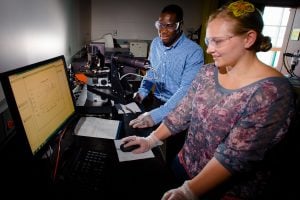 The ECE Department at Michigan Tech has a long and distinguished history in undergraduate education, having prepared over 8000 engineering students for meaningful careers since its inception in 1928. The times are changing, however, and Michigan Tech is changing as well. Some 40% of the engineering students in the United States now are graduate students, seeking MS and PhD degrees. Our programs have been evolving over the past 2-3 decades to respond to this changing demographic and to respond to the needs of the marketplace. Today our graduate programs are just as important in defining who we are and what we do as our undergraduate programs. This is not to say that we are building graduate programs just to respond to outside forces – in today’s world, a thriving academic engineering department is one in which undergraduate education, graduate education, and faculty-led research all co-exist in synergistic harmony.
The ECE Department at Michigan Tech has a long and distinguished history in undergraduate education, having prepared over 8000 engineering students for meaningful careers since its inception in 1928. The times are changing, however, and Michigan Tech is changing as well. Some 40% of the engineering students in the United States now are graduate students, seeking MS and PhD degrees. Our programs have been evolving over the past 2-3 decades to respond to this changing demographic and to respond to the needs of the marketplace. Today our graduate programs are just as important in defining who we are and what we do as our undergraduate programs. This is not to say that we are building graduate programs just to respond to outside forces – in today’s world, a thriving academic engineering department is one in which undergraduate education, graduate education, and faculty-led research all co-exist in synergistic harmony.